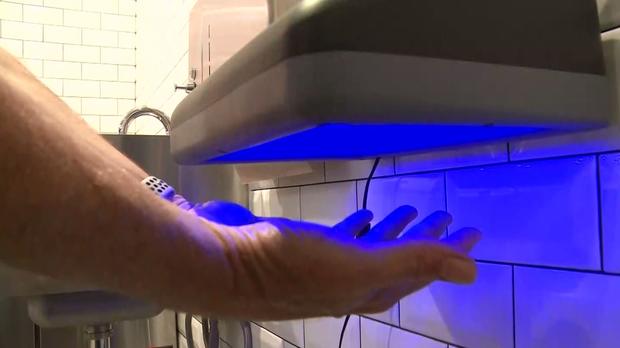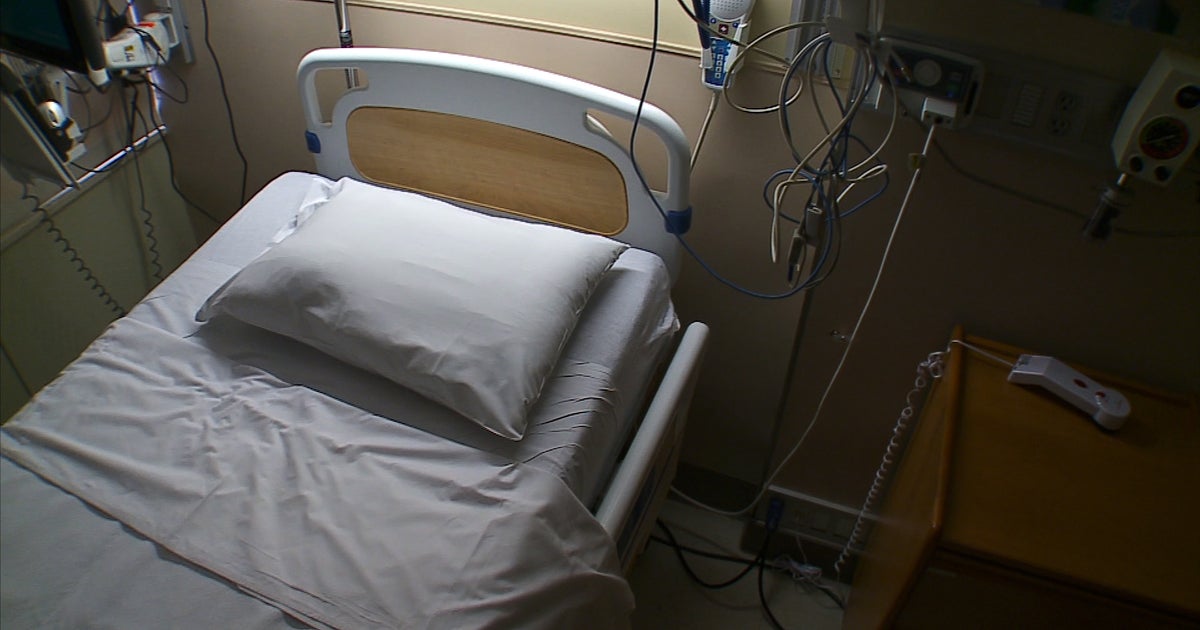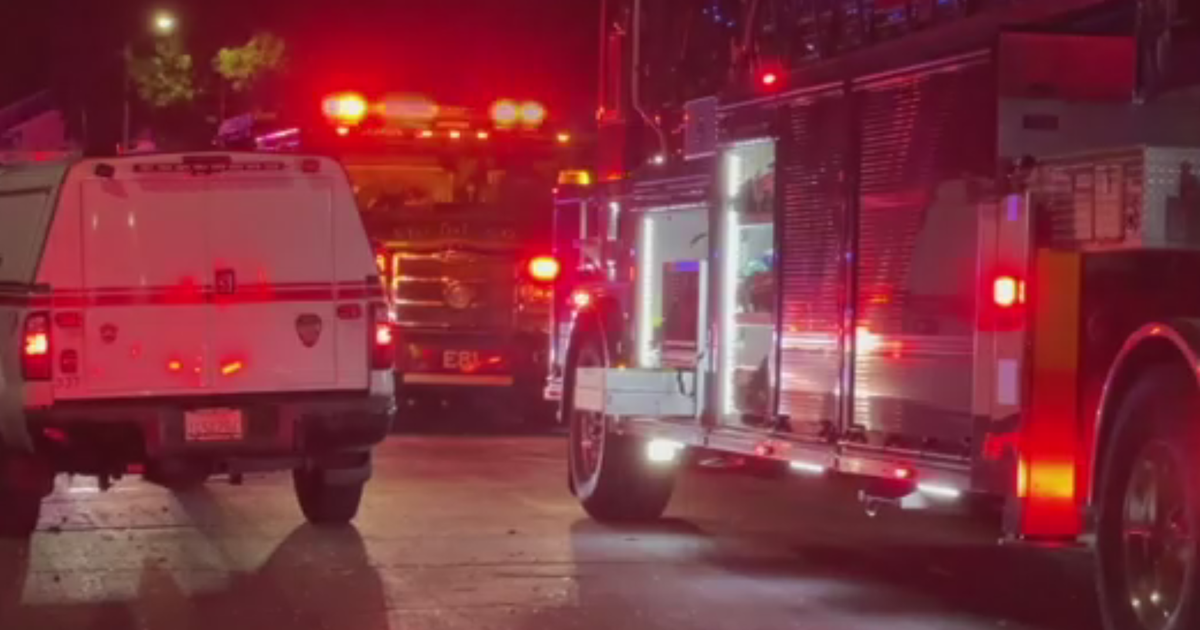Restaurants Test Hand Scanner To Detect Germs Before They Spread
SAN JOSE (KPIX 5) -- A food safety startup is ramping up pilot testing of a hand scanner to detect pathogens, and a Bay Area restaurant chain gave KPIX 5 a first look.
PathSpot, based in New York, has installed its first device on the west coast at the Pizza My Heart location on Camden Avenue in San Jose's Cambrian Park neighborhood.
The device, about the size of a typewriter, hangs on the wall, with cameras and purple lights pointing downward. Employees automatically activate the machine by placing their hands underneath.
The scan lasts a few seconds, and PathSpot says it utilizes "visible light fluorescence spectroscopy" and a camera with a wide angle lens to scan for "core indicators" of E-coli, salmonella, norovirus, hepatitis A and listeria, among others.
"So what we do is we shine a specific wavelength of light and use the reflective properties off of the invisible contamination, and then we pass that through a series of different algorithms to be able to determine on an image if there's anything present," said Christine Schindler, PathSpot co-founder and CEO.
Facial recognition identifies each user and logs their scanning history. If employees continuously fail with dirty hands, it triggers a text or email notification to management.
PathSpot says it compiles employees' trends on failed scans, which are typically caused by detecting pathogens in commonly under-washed areas underneath fingernails, the side near the pinky finger and the web in between the thumb and forefinger.
"And then we can give that information in trainings to the restaurants so that when they are building out their sanitation protocols, they can say to the staff, '85% of the time you failed a scan, it was on your left pinky during the lunch rest. Let's make sure to thoroughly in that specific spot,'" said Schindler.
"We typically see an average of 20 percent of people fail a hand scan during their first week of use. That's just because you don't know these invisible contaminants are on your hands. But we see that after a month of using the device, those hand scan contamination rates drop by over 75 percent because people are becoming more effective in their hand washing."
Chuck Hammers, owner of more than two dozen Pizza My Heart locations in California, says Chipotle's massive E-coli outbreak in 2016, which sickened 55 people and closed 43 restaurants across 11 states, was a wake up call to the restaurant industry to do more.
"I think in the long run, it's a game changer with health in restaurants. A lot of health problems come from people not washing their hands. And we train and train and train. But to know for sure, now we have a check," said Hammers.
Schindler was also moved to action by the Chipotle incident, drawing on her experience using light detection technology in breast and cervical cancer treatment.
"[Detection of] flu in office spaces, peanut oil in schools, staff infections in hospitals, that's where we think the future of the product is going," said Schindler.
PathSpot has raised about $2 million in seed funding and is being tested at 50 different locations all over the country.
The initial cost will likely start around $150 a month for the scanner.




